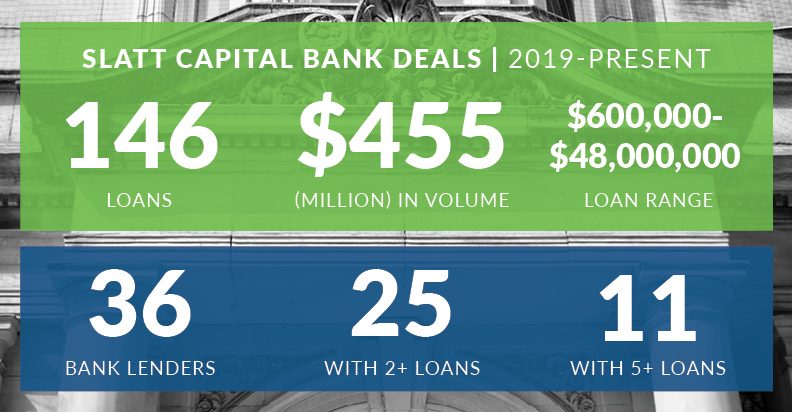
Should You Bank on Your Local Banker?
Many real estate borrowers traditionally rely on a commercial bank to source funds for the purchase or refinancing of commercial properties. The commercial banking loan officer is tasked with developing a relationship with these borrowers to pitch the bank’s loan products to them. While many banks have fine loan programs, how do borrowers really know if a specific loan program is best for them?
Examining the Options
Choosing to source financing through a regional or large commercial bank may seem like an easy option, but many reasons exist as to why that course might not be the best option or in the borrower’s best interest. So why should borrowers consider a different approach?
- Commercial banks offer specific mortgage products, and while a loan officer may want to create the best structure for your need, the institution’s loan programs dictate the options. An independent commercial mortgage banker acts as a trusted advisor that can explore opportunities across the market in search of the best lender, product and terms.
- Lack of exposure to other institutions’ offerings means the bank loan officer — and YOU — do not really know if a better product exists elsewhere. Mortgage banking professionals are immersed in the markets every day, giving customers confidence that their loan fits their need at the most competitive terms.
- Global, national and regional banks have thousands of customers. The volume of transactions underway at any one time may therefore translate to 1) a less personalized approach once the loan leaves your local officer, and 2) loan product changes that make your loan relationship less relevant. Mortgage bankers serve fewer customers, allowing for deeper relationships and an expanded lender network.
- Commercial banks prefer straightforward loan transactions, forcing borrowers with credit, property-specific and other issues or special needs to seek alternate options. Mortgage bankers have access to more lenders and work case-by-case to locate opportunities for even the most challenged application.
- Both commercial banks and mortgage bankers want to build long-term relationships that generate repeat business. The difference lies in the evolution of the relationship through time, personnel changes and product revisions. Mortgage bankers tailor their services to customers by offering numerous resources, while commercial banks mold customers’ needs to their services.
Making the right choice for you
Borrowers clearly have options for the financing or refinancing of a commercial asset. Key to finding the right loan is working with an experienced advisor who can package financing opportunities and source the best option from a variety of lending sources. Banks are still valuable funding sources and Slatt Capital closed well over 100 loans with more than three dozen bankers over the past 20 months.
So when considering options for financing or refinancing of a commercial asset, resist banking on your local banker. Instead, work with an advisor who has the flexibility to locate loans structured to your needs, not theirs.
